Antibodies for metabolism research
The relationship between glucose, energy, mitochondrial dysfunction, and disease.
AMPK: a metabolic master switch
One of the central regulators of cellular and organismal metabolism in eukaryotes is AMP-activated protein kinase (AMPK). It is a highly conserved metabolism master regulator that restores energy balance during metabolic stress at both the cellular and physiological levels. AMPK monitors the ratio of AMP/ATP, and also that of ADP/ATP (Figure 1). AMPK is switched on by increases in the AMP/ATP ratio via three mechanisms, all of which are antagonized by decreases in the AMP/ATP ratio.
AMPK has recently been associated with cellular processes such as autophagy and cell polarity. It has been also implicated in several species as a critical modulator of aging through its interactions with mTOR or sirtuins (Figure 2). The kinase is activated in response to stresses that deplete cellular ATP supplies such as low glucose, hypoxia, ischemia, and heat shock.
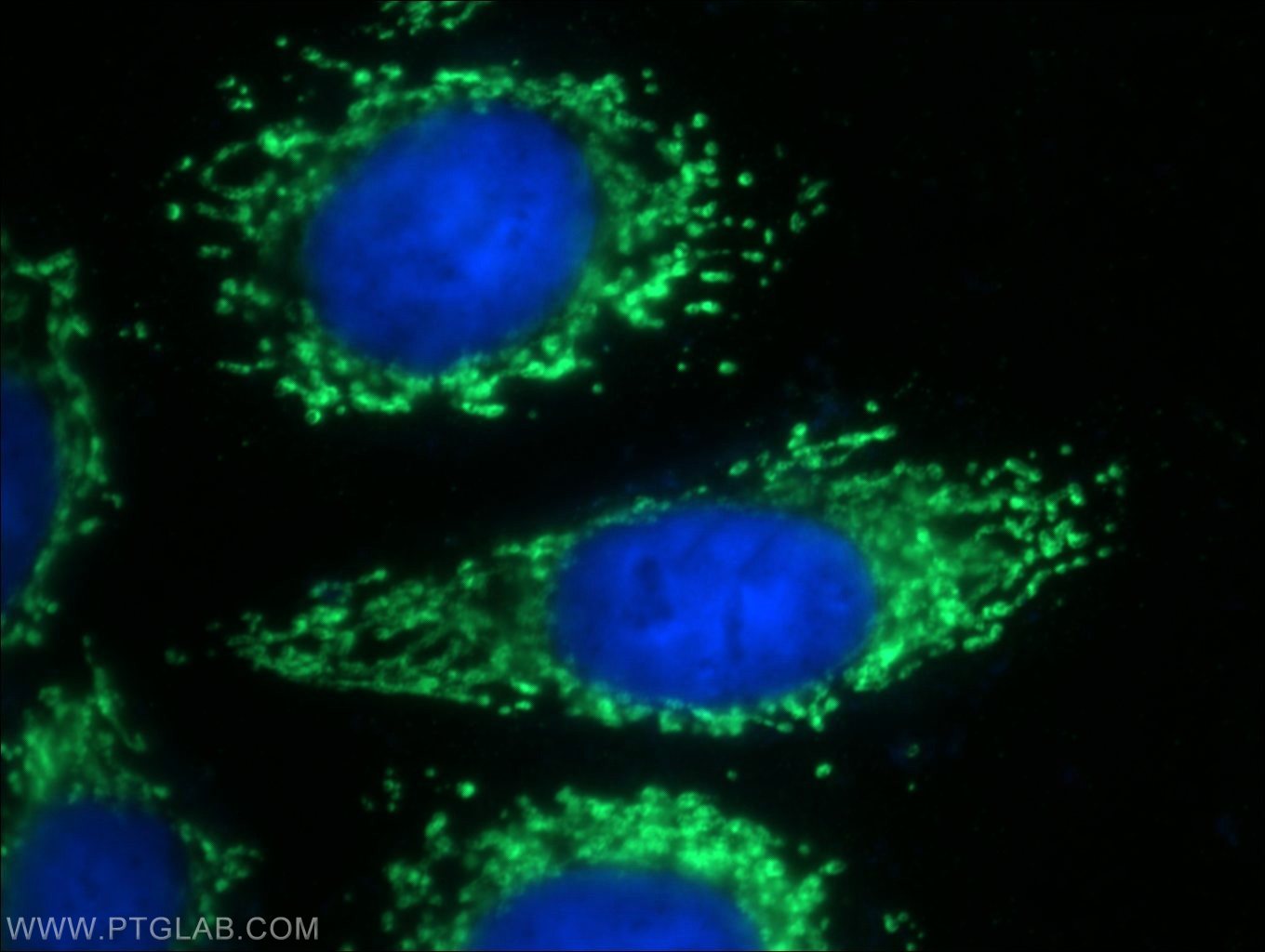
Figure 1. Immunofluorescent analysis of HeLa cells using 12568-1-AP (AMPK gamma2 antibody) at a dilution of 1:50 and Alexa Fluor 488-conjugated AffiniPure Goat Anti-Rabbit IgG(H+L).
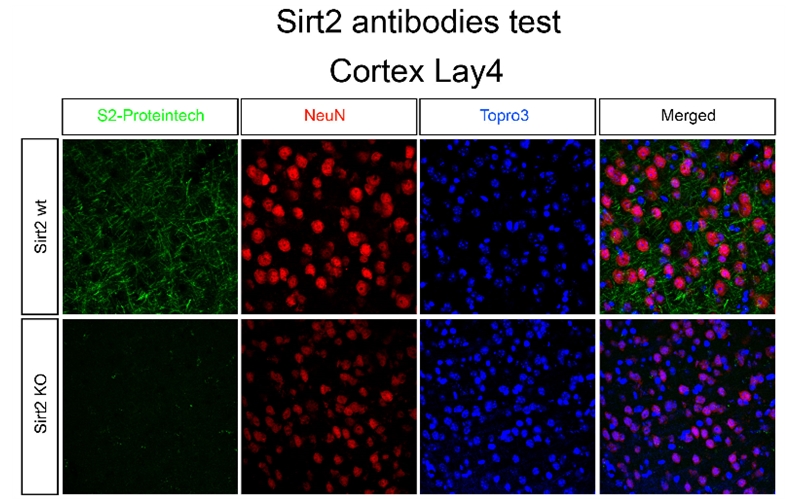
Figure 2. IF results of KO validated SIRT2-specific antibody (19655-1-AP) antibody with cortex slides of SITR2-WT and SIRT2-KO samples.
Liu et al. described how hydrogen sulfide (H2S) has anti-oxidative effects and protects arterial endothelial cells by suppressing excessive autophagy induced by oxidative stress through the Nrf2-ROS-AMPK signaling pathway. Researchers have confirmed their results by WB analysis using Proteintech 10929-2-AP antibody.
IFT88: Metabolic and energy homeostasis regulator
Among its many functions, IFT88 helps mediate intraflagellar transport, which is essential for the assembly and maintenance of cilia and flagella in many organisms. It is also involved in autophagy since it is required for trafficking of ATG16L (Figure 3) and expansion of the autophagic compartment. Proteintech polyclonal IFT88 antibody (Figure 4) has appeared in over 100 publications to date. One such publication is related to Kif3 protein, and its role in mammalian Hedgehog (Hh) signaling, whereby researchers used the anti-IFT88 antibody as a marker for cilium retraction along with acetylated tubulin in IF staining.
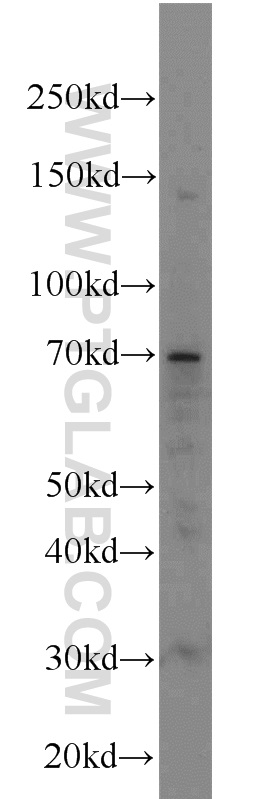 |
Figure 3. MCF7 cells were subjected to SDS PAGE followed by western blot with 19812-1-AP (ATG16L1 antibody) at dilution of 1:500 incubated at room temperature for 1.5 hours. |
| GAPDH Antibody | 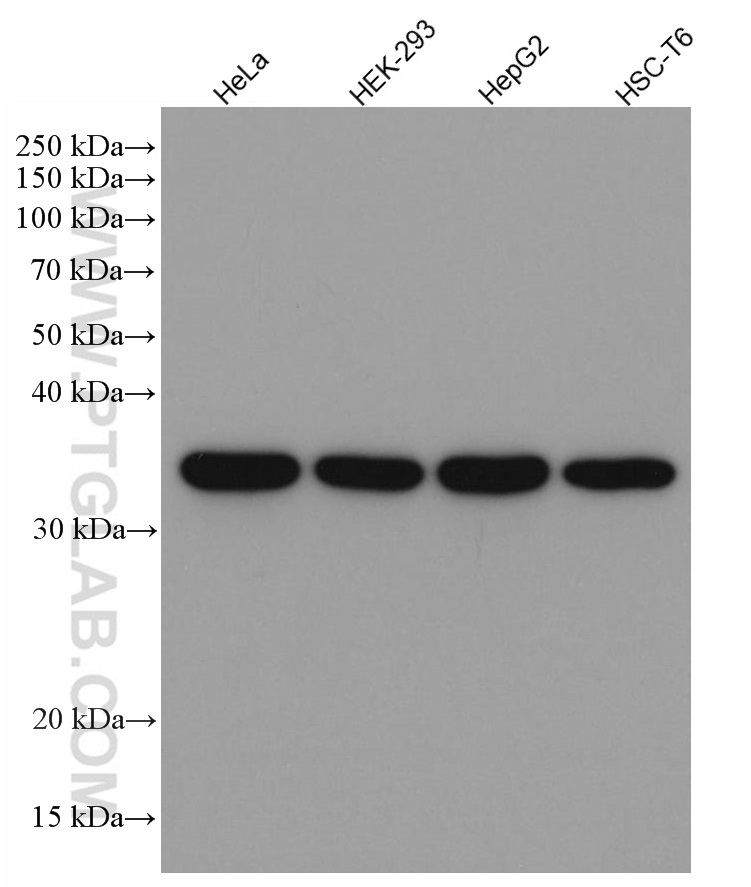 |
| Catalog no.: 60004-1-Ig | |
|
GAPDH is commonly used as a protein loading control in western blot due to its consistently high expression in most cell types. This enzyme participates in several cellular events such as glycolysis, DNA repair, and apoptosis. Proteintech monoclonal GAPDH antibodies are raised against a whole-protein antigen of human origin and have over 4,960 citations. |
| Beta Actin Antibody (KD/KO validated) | 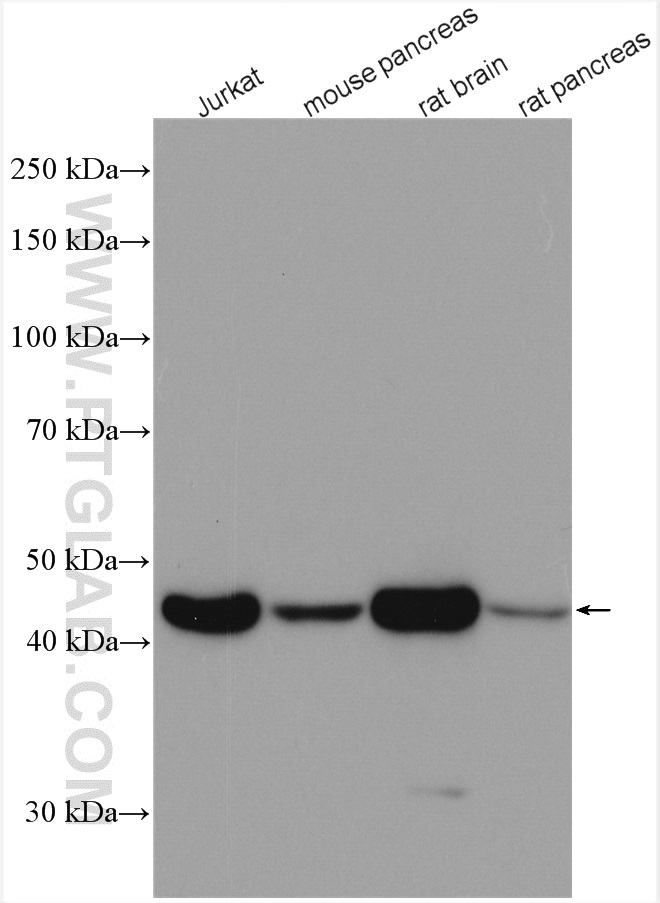 |
| Catalog no.: 66009-1-Ig | |
|
Beta-actin is usually used as a loading control due to its broad and consistent expression across all eukaryotic cell types and the fact that expression levels of this protein are not affected by most experimental treatments. 66009-1-Ig has been cited in over 2,460 publications and has wide species reactivity. |
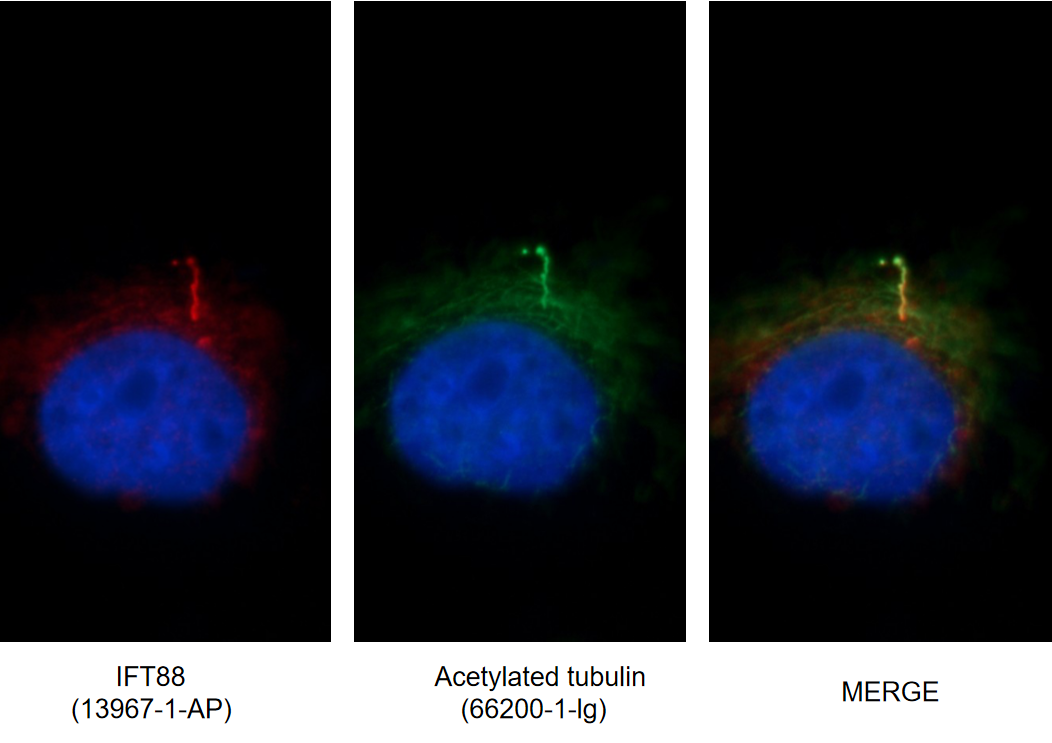
Figure 4. Immunofluorescent images of MDCK cells stained with KO tested IFT88 rabbit pAb (13967-1-AP) and acetylated tubulin mouse mAb (66200-1-Ig) at a dilution of 1:50, further stained with Alexa Fluor 594-conjugated AffiniPure Goat Anti-Rabbit IgG(H+L) for 13967-1-AP, and Alexa Fluor 488-conjugated AffiniPure Goat anti-Mouse IgG(H+L) for 66200-1-Ig.
Pivotal role of GSK-3
GSK3 (Glycogen Synthase Kinase-3) is a signaling mediator involved in a variety of different signaling pathways, including WNT, growth factors, insulin, and Hedgehog pathways. Recent studies have shown GSK3 dysregulation to be associated with a number of diseases, including Type II diabetes, inflammation, cancer, and bipolar disorder.
While performing WB and IHC experiments with Proteintech antibody (Figure 5), Chen et al. studied the role of GSK in endometrial carcinoma. As a conclusion, they suggested that GSK-3β may be a novel and important therapeutic target in the treatment of that type of cancer. It has also been suggested that inhibition of GSK enhances its to undergo oxidative metabolism and has protective effects on neurons, counteracting ischemic neuronal death.
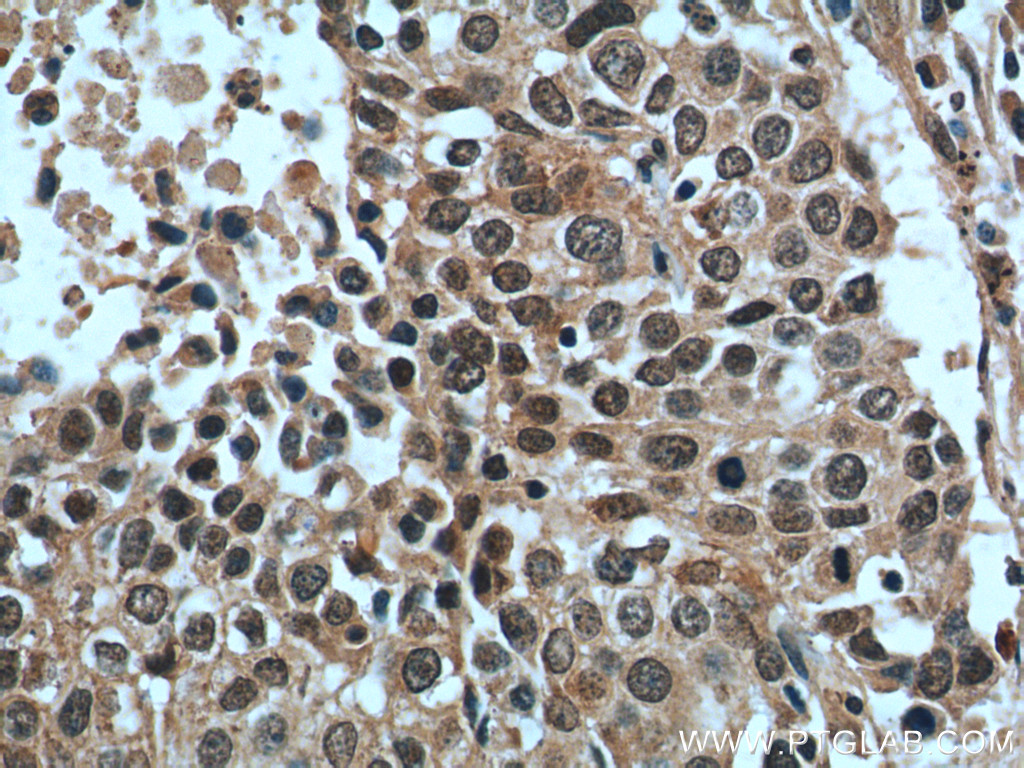
Figure 5. Immunohistochemistry of paraffin-embedded human lung cancer tissue slide using 22104-1-AP (KO/KD validated GSK3B antibody) at a dilution of 1:200 (under 40x lens). Heat mediated antigen retrieved with Tris-EDTA buffer(pH9).
Find out more about GSK and all Proteintech antibodies related to metabolism research here.
